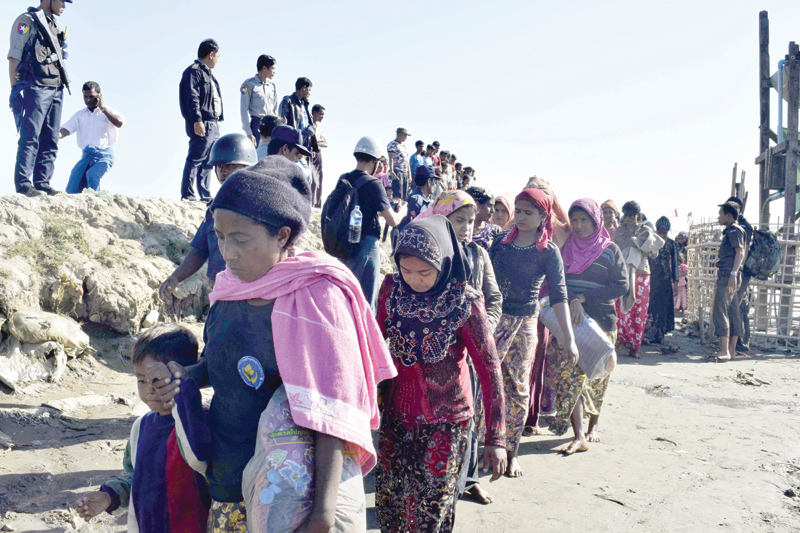

Yangon: Fleeing Rohingyas sold ration books to help pay hundreds of dollars to traffickers in order to flee squalid Myanmar camps by boat, only to be stopped at sea and forced back destitute, the refugees said on Friday.
Images of hungry and thirsty refugees huddled on boats have stirred memories of a 2015 crisis, when thousands of fleeing Rohingya were stuck at sea as a trafficking trail south collapsed.
Some 120,000 of the stateless minority have languished in camps in central Rakhine for six years since a bloody bout of intercommunal violence with ethnic Rakhine Buddhists. The end of the monsoon brings more favourable, if still treacherous, sailing conditions for those desperate to escape the camps that are branded as “open-air prisons” by rights groups and where the refugees have little access to work, education or healthcare.
One Rohingya boat this week made it to Aceh on the northern tip of the Indonesian island of Sumatra but several others have been picked up in Myanmar waters and those on board sent back to the camps.
Journalists are not allowed to enter the camps except on brief government-chaperoned tours, but one young Rohingya in Thechaung camp said by phone how he had sold his food ration book to help pay the 600,000 kyat ($385) fee to traffickers.
He had hoped to reach Malaysia, but after 15 days at sea his boat was seized south of Yangon and authorities sent him and his fellow detainees back to the camps.
“I need to get my ration book back,” he said. “I can only earn 1000 kyat per day on a fishing boat, which isn’t enough to eat.”
AFP has withheld his identity to protect him. UN refugee agency spokeswoman Aoife McDonnell said many of the Rohingya had sold or lost all their possessions, including their shelters, to pay people smugglers.
They are in “acute need of support” now they are back in the camps, she said. — AFP
Oman Observer is now on the WhatsApp channel. Click here



